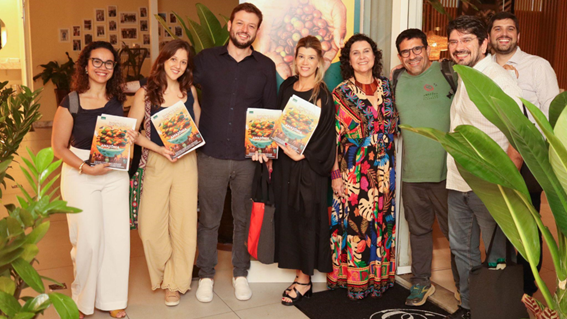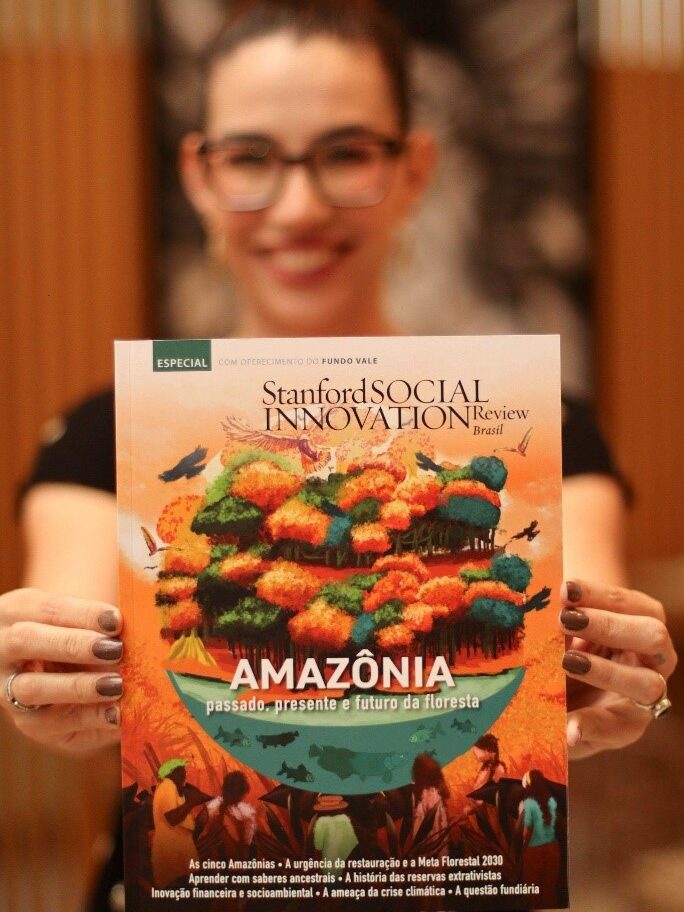Publication features renowned writers who offer a variety of perspectives on the world’s largest rainforest

During the Third Amazon Impact Investing and Sustainable Business Festival (FIINSA), a special Amazon-focused edition of the Stanford Social Innovation Review Brasil, sponsored and curated by Fundo Vale, was launched. A world reference in social innovation, this journal features content that combines academic rigor and the dissemination of innovative ideas and practices for social and environmental impact.
Under the theme “Past, Present and Future,” the special edition brings together 11 articles by specialists in the environment, economics, public policy, climate science, land tenure reform, ancestral knowledge and practices, impact entrepreneurship and sustainable finance. The contributors offer analyses of the world’s largest tropical forest, providing different perspectives and possible strategies for dealing with the climate crisis, the socioeconomic vulnerabilities of traditional communities and the challenges involved in protecting biodiversity and restoring areas.
“Our work is based on data and this journal has a very interesting connection between academia and practice. The result is a very rich publication and a very useful knowledge tool. So, I invite you to celebrate the journal together with those who wrote it, with those who are thinking about the Amazon,” said Liz Lacerda during the launch event.
The journal is a reference for public managers, leaders of social organizations, researchers and companies seeking solutions to Brazil’s social and environmental challenges, connecting global knowledge with the country’s circumstances.

The article “An innovative goal: Habitat restoration through sustainable businesses” highlights the potential for collaboration between investors, companies, researchers and the public sector in initiatives that integrate the protection and recovery of areas with socioeconomic development. Written by Fundo Vale’s Gustavo Luz, Juliana Vilhena, Nathália Cipoleta and Bia Marchiori, the paper presents the experience of Vale’s 2030 Forest Goal as an innovative model for restoring areas through sustainable systems with positive social and environmental impacts, which can serve as a reference and inspiration for other initiatives.
Click here to access the journal.
